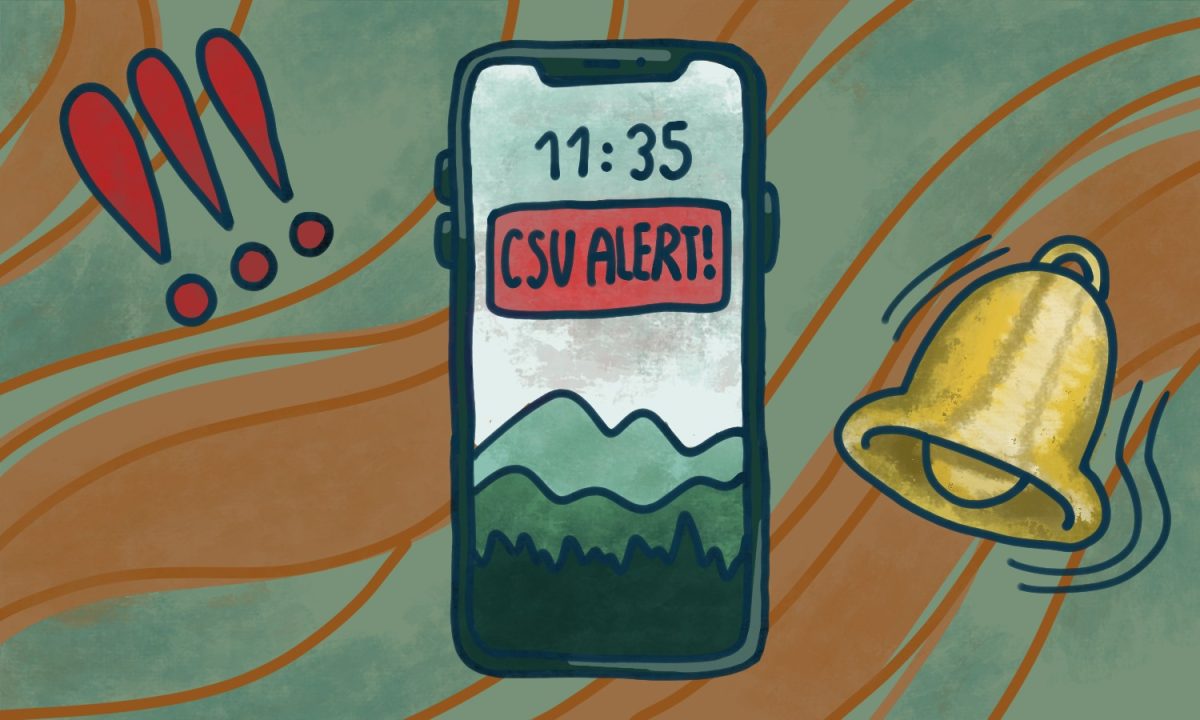An annual report released by the Colorado State University Police Department shows an increase of almost twice the number of arrests for liquor law violations in residence halls in 2016.
According to the 2017 Annual Fire and Safety Report, the number of arrests for liquor law violations in residence halls increased from 32 to 61 between 2015 and 2016, a 47 percent increase in violations.
Yet, compared to the data from 2014, this rise is standard, as the number of the arrests increased from 17 to 32 between 2014 and 2015, a nearly identical increase of 47 percent of arrests.
Despite the immense increase in arrests continuing a pattern from the previous year’s data, there have been 44 arrests more arrests in 2016 than 2014.
Frank Johnson, police Captain of CSUPD, does not believe the variance in data is abnormal, but rather it is unpredictable depending on the dynamic of each incoming class.
“Next year, it could possibly go down,” Johnson said. “You just don’t know from year to year. It also depends on the class of students that we have coming in. Even if the numbers were the same, this year’s students may be drinking more than last year’s students.”
The outcome of the incident is often at the officer’s discretion, but student’s will receive a referral if there is alcohol in a residence hall whether they are 21 years of age or not, as residence halls do not allow any illegal substances.
According to Johnson, referrals are more common than arrests because they serve more as a warning than a permanent punishment.
Data shows an increase in arrests for drug abuse violations as well as alcohol and drug disciplinary referrals in residence halls.
Between 2015 and 2016, the number of alcohol referrals increased from 1004 to 1198, an increase of 194 referrals, or 16 percent. Arrests for drug abuse violations increased from 33 and 40, an increase of 7 arrests, or 17 percent.
The number of drug disciplinary referrals in residence halls faced an even larger growth, as 2015 had 365 referrals and 2016 had 513, a nearly 29 percent increase.
Johnson said he cannot pinpoint a correlation between the legalization of marijuana and an increase in drug referrals and arrests because he believes the number of citations and referrals varies based off size and dynamic of each class. Previous reports supports this statement, as the amount of arrests for drug abuse violations has remained between 30 to 40 since before 2012, the year that marijuana was legalized.
The process of receiving a referral or citation is issued by a residence assistant or police officer, respectively. According to Jen Burritt, a junior studying civil engineering and resident assistant in Edwards Hall, RAs most often work together when alcohol is discovered in residence halls, but not always.
Burritt said if residents are compliant and respectful, more often than not they will receive a warning and the narrative of the conversation will be on record.
Yet, if residents are disrespectful, under the age of 21 or in a worrisome state, police officers are contacted and they take over the situation.
“During these situations, I try to follow the procedure given to RAs as closely as possible,” Burritt said. “I try to show everyone respect, I try to support my partner, I try to limit ways residents can impede the process and I don’t let residents bargain with me or talk me out of following procedure.”
Despite her previous experience as an RA, dealing with illegal substances in residence halls is stressful for Burritt as she strives to handle the situation as best as possible.
“I always feel very stressed no matter the contact,” Burritt said. “If something happened that was unusual or if there was something I think I could have handled better, I talk to my supervisor to find a better way to handle the situation in the future.”
If a police officer is called, the outcome of the situation is at the officer’s discretion.
“Depending on circumstances, there could be more pressing issues that officers need to get to,” Johnson said. “So, what they will do is if that person is okay – safe, healthy and not under the influence to the point where they can’t take care of themselves – they may just do a referral so they can get to other issues that may be at hand.”
If a student is caught, the Student Resolution Center is responsible for handling the situation. The process for each student who receives a citation or referral looks different depending on the circumstances of each incident. According to their website, a Hearing Officer decides if an incident warrants a disciplinary hearing if the student violated the Student Conduct Code. If the situation does not warrant a hearing, the officer offers alternative resolutions such as mediation.
A student, who wishes to remain anonymous, was caught with illegal substances last year. Following the incident, the student met with a Hearing Officer, but was let out with a warning as he was not consuming any illegal substances himself.
Yet, despite initially being petrified by the situation, the process did not necessarily slow him down, but rather pointed out how quiet you need to be to get away with drinking in residence halls as RAs are very attentive.
“I would say that initially the process slows you down because it seems really scary and formal, like you’re going to a sentencing hearing or something, but it’s pretty informal,” the student said. “It’s enough to incite fear into you for the month or so before the hearing, but after nothing really changed in terms of drinking habits.”
Collegian reporter Piper Davis can be reached at news@collegian.com or on Twitter @piperldavis.











